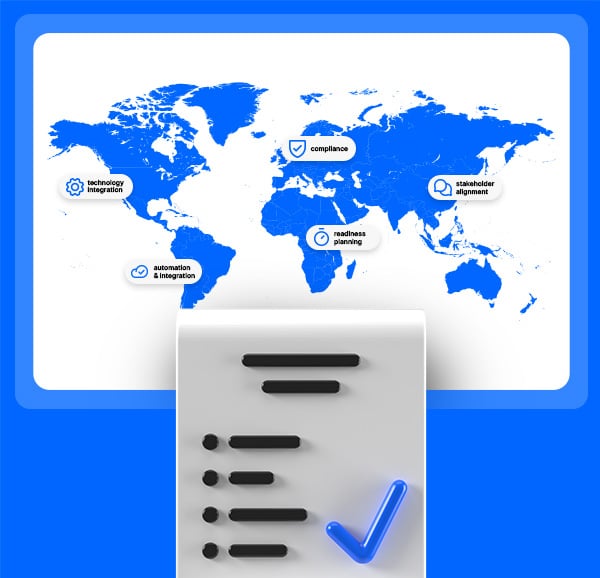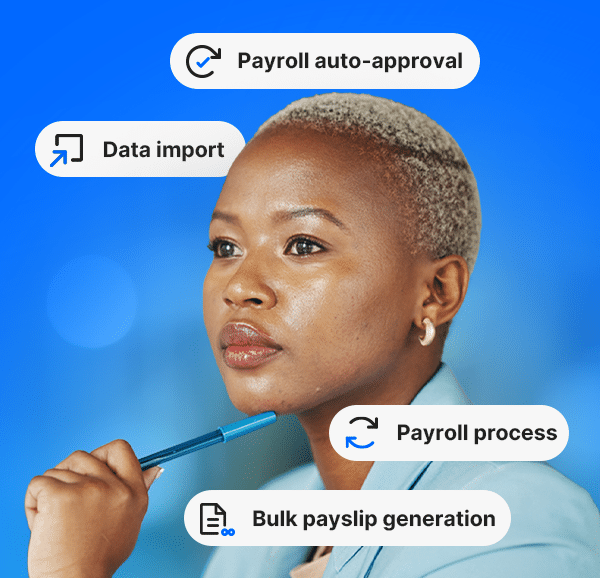Just about every industry and business around is talking about artificial intelligence. As platforms like ChatGPT have become mainstream, now is the time to explore potential uses of AI, especially in how it can help staff rather than replace them. And in payroll and HR, there is plenty of scope for AI and automation to make operations faster, simpler, more cost-effective, less prone to error, and more beneficial for the end user.
This blog takes a look at AI revolution from a modern pay perspective, exploring where it can be deployed now, and how it could be used to an even greater extent in the future.
AI deployments in Payroll
Payroll has always been fairly transactional in nature, but with the advent of AI, that’s beginning to change. With AI’s ability to automate processes and generate insights through analytics, payroll can become far more strategic in nature and play a bigger role in overall business operations and
Time approval: AI and automation can take care of approving time cards and records that come through as expected, meaning managers can save their own time by only focusing on any anomalies or cases that require human intervention
Earned Wage Access: a good EWA platform, which allows employees to access their wages as they accrue, will contain analytics functions that can identify trends in employee behavior, such as frequent withdrawals, how much overtime pay they earn and take out, and so on. These insights can help businesses make the right decisions in supporting employees’ financial wellbeing, which can improve their morale and productivity as a result
- Remote worker management: AI can make it much easier to manage the payroll requirements of employees who work remotely, including any taxes and benefits payable in different jurisdictions
- Process AI can support fast, reliable data entry and validation in areas including timesheets and employee information, freeing up payroll staff time for other duties and reducing the risk of costly errors being made
- some of the services and communications that employees often need from payroll can be covered by AI-powered chatbots, along with pay slip access and salary information
AI deployment in HR
Innovations such as AI are helping bring payroll and HR closer together than perhaps they’ve ever been before. In fact, 92% of HR leadersare looking at increasing their use of AI in at least one key area. Stand-out use cases here include:
- Streamline hiring processes: AI can be used to generate job descriptions and match internal employees to new positions that emerge. This can help HR departments make sure they recruit the right people for the right roles, and make the process faster and easier for them to execute
- Simplify onboarding: similar to the previous point, AI can play a major part in smoothing out the onboarding journey for new hires. This can include automatic verification of employee documents, fielding common questions through chatbots, and taking care of admin tasks like provisioning software access. Employee data can also be analyzed to tailor inductions and training to individual needs, which can improve employee engagement
- Improve employee support: AI can lend a helping hand to HR teams trying to keep on top of employee support needs. For example, it can generate reminders to contact employees on a regular basis, or monitor online activity to spot any areas where productivity might be suffering. This allows a more proactive approach to be taken, so that HR teams can address issues before they can have too much of an impact
Why AI is a real force for good
It’s worth stating that AI is not necessarily the answer to everything, mainly because it has its own limitations. While AI can give payroll and HR professionals more information to make better decisions, it can’t paint the full picture on its own. That’s why AI should be considered a helpful tool rather than a replacement for human endeavor.
But if deployed in the right ways, payroll and
Greater efficiency: automating repetitive tasks that soak up a lot of staff time means payroll and HR teams can devote their efforts in other, more value-adding areas
Lower costs: AI-powered data analysis can spot trends and opportunities to deploy more cost-effective ways of doing things
More informed the greater level of insight that AI enables means payroll and HR leaders can make the big decisions with confidence
Stronger compliance: AI technology can validate systems and data against all relevant regulations and tax requirements, which can otherwise be especially complex for businesses that operate in many different territories
More intuitive employee support: AI can flag areas where employees might need support or development opportunities much earlier than HR or payroll staff are able to detect them, so that help can be provided faster
Perhaps the most exciting part of the AI discussion for payroll and HR is that the technology is still in its relative infancy. As this blog demonstrates, AI is already able to support businesses to a huge extent with its payroll and HR operations – and the Get in touch with our team today to find out more.


